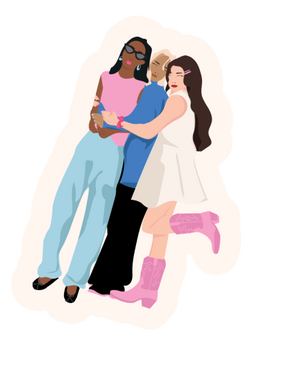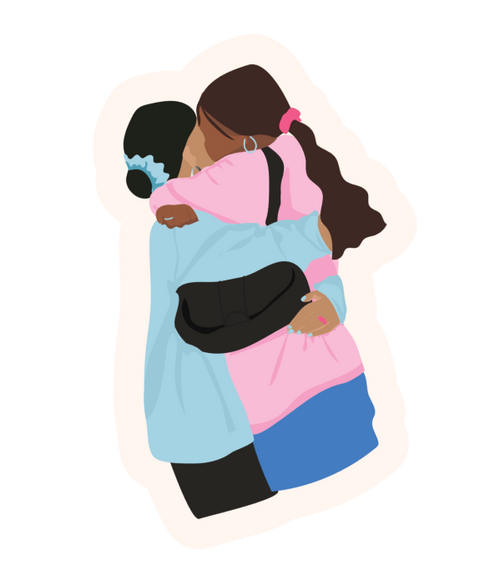Grief and alcohol pretty much go hand in hand for a lot of people. Wakes are often seen as an opportunity for a piss-up with the cousins, aunts, uncles and extended family you haven’t seen in years. Wakes are often hosted in pubs and the direct family are bought pints by the guests. Family and friends tell stories about your loved one that often include a ‘hilarious’ time when they were plastered. And after the wake, friends reach out to you by taking you to the pub to offer support over a pint or two. Or, you may go out and get drunk to try to forget all about it.
When my dad died in the summer due to illnesses as a result of alcohol addiction, I decided to stop drinking alcohol as I no longer wanted to participate in the drinking culture that ruins the lives of people like my Dad. This has caused me to become newly sober in a period that most people in Western culture identify with drinking. I understand that people may choose to drink through periods of grief to try to momentarily escape their feelings and because in our society we often lack tools and understanding needed to handle grief without resorting to alcohol as a coping mechanism. However, I would argue that handling grief completely sober is a much healthier way and that it has helped me immensely.
I have found that by not relying on alcohol to bury my emotions, I have been able to grieve more freely. I have allowed myself to feel my emotions when I needed to, and have not repressed them by drinking resulting in them resurfacing as a result of getting drunk. Sobriety has helped me to give my grief space by teaching me to make and uphold boundaries when necessary. As we know, when you become sober, it is necessary to protect your peace by saying no to occasions that could cause you to compromise your sobriety. Using this tool, I have learnt to say no to occasions or to exit situations when I actually need some space to grieve instead.
When it comes to the ‘death-min’ (admin associated with the loss of a close loved one), being sober is a godsend. Like many people who are ‘next of kin’, I was left with weekly visits to the banks, calls to phone companies, the council, the post office and all sorts, on top of cleaning out his home and office, even after the funeral organisation was completed. I simply couldn’t imagine doing this with a hangover when it is scientifically proven that I would be in an increased depressive state, tackling nausea, sleep deprivation, a headache, and an anxious disposition.
I can understand why people may choose to numb themselves out for handling this mountain of tasks in an already difficult time. However, it has been much simpler to complete these tasks whilst I have been sober as being drunk or hungover would only prolong these annoying activities and would cause a lack of focus which would make the tricky paperwork even more difficult.
Despite losing my dad, as a result of abstaining from alcohol, my mental health has been more resilient than ever. Although there are obviously hard days, this is completely natural and my improved mental state has enabled the emotions to pass much quicker than they would have if I were drinking. I have barely felt anxious since becoming sober which is significant because I used to suffer from almost weekly ‘hangxiety’ causing me to overthink everything I’ve ever said or done. Sobriety and the advice of sober podcasts have also caused me to pick up new habits to help my mental health which I have rarely taken seriously before, all of which have helped me to manage my emotions throughout my grief.
However, one thing that I wasn’t prepared for is how lonely sobriety can be. Becoming sober and being one of the only (or the only) non-drinking people in a group of friends can be incredibly isolating as not many people know what it feels like to give up something that is so incredibly ingrained in all aspects of our culture. It has also been a huge shock to my identity. My sense of self has had to reconfigure to this huge change in my life, having just become a newly sober 24-year-old who has recently lost her dad.
This has been difficult when navigating British people’s typical response to a tough time (inviting you to the pub for a pint or glass of wine). Because of the circumstances surrounding my Dad’s death, I can’t think of anything worse than remembering him over a beer. However, this has caused me to meet up with friends in much more meaningful ways. Whilst I do still enjoy visiting a bar for other occasions, my sobriety means that I have authentic connections with friends, in ways that I will remember, and that won’t cause me anxiety the next day. I think that society’s response to a friend going through grief needs to change, as I don’t think that encouraging your grieving friend to drink something that is known to be a depressant is as caring as people may think it is.
Plus, when I have seen friends, I have been much more in control of my emotions than I would have been if I were drinking. I have not had a drunken meltdown, overshared or trauma dumped, and made a brief chance to forget about my grief all about the exact thing I was wanting a slight escape from.
Similarly, losing a loved one is a devastatingly lonely experience too. Being 24, not many of my peers have experienced the loss of a parent and lots of people haven’t had the experience to inform them on how to support me through this. Additionally, the taboo of alcohol addiction in a culture that essentially worships the substance makes it an often uncomfortable conversation to have, especially if the friend has had no prior experience with addiction and it can feel like a situation that few can understand. Of course, platforms like this one have been so useful as well as addiction awareness and recovery advocates such as Abi Feltham, Sober Dave and Sarah Drage who are helping to open the conversation, as well as Sober Girl Society.
Despite the struggles, I am so pleased that I decided to become sober and I can’t stress enough how much I recommend it to people who are grieving. Knowing that I am handling one of the most challenging things that people have to go through without numbing out something I am proud of and the trust that I have gained for myself as a result of knowing that I am doing my best to take care of myself is immeasurable.
Written by Ashleigh Kent
Ashleigh is 24 and lives in Manchester. Ashleigh became sober in July 2022 and will soon be celebrating 6 months sober (and turning 25). She works in the arts and enjoys reading, painting, live music, and visiting exhibitions. She looks forward to figuring out life as a sober person and working to normalise sobriety.












